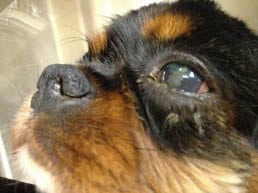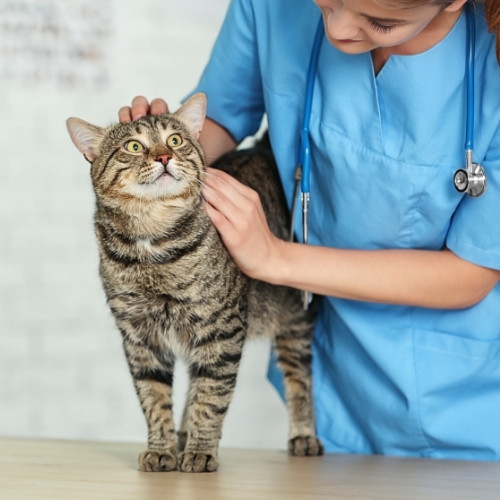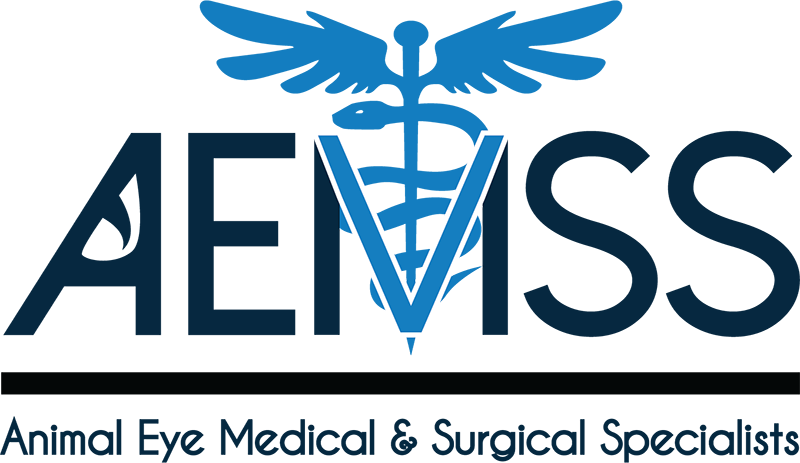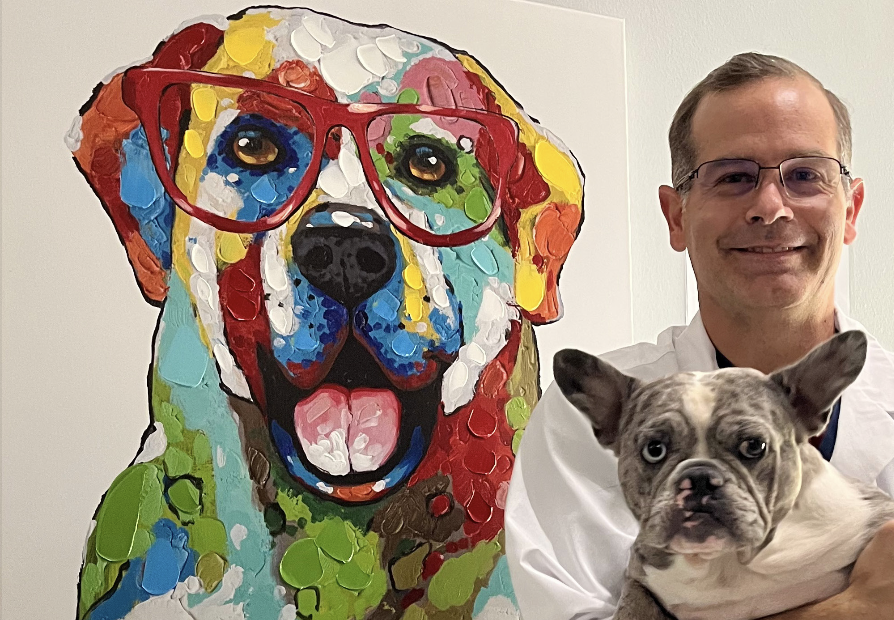Pet Corneal Ulcers in Katy, TX
Corneal ulcers are a common but serious condition in pets that require prompt attention and specialized care. At Animal Eye Medical & Surgical Specialists in Katy, TX, we provide expert diagnosis and treatment for pets suffering from corneal ulcers, ensuring their comfort and preserving their vision.
What Are Corneal Ulcers?
A corneal ulcer is an open sore on the cornea, the clear outer layer of the eye. These ulcers can vary in severity, ranging from superficial, which only affects the outermost layer, to deep, which penetrates more than half the corneal thickness. If left untreated, corneal ulcers can lead to complications such as corneal perforation, which may result in the loss of vision or even the eye itself.
Corneal ulcers are extremely painful, as the cornea is one of the most sensitive tissues in the body. Common signs that your pet may be suffering from a corneal ulcer include:
- Squinting or keeping the eye closed
- Excessive tearing or discharge from the eye
- Redness of the eye
- Cloudiness or haziness of the cornea
- Sensitivity to light (photophobia)
- Rubbing or pawing at the eye
If you notice any of these symptoms in your pet, it’s crucial to seek veterinary care immediately. Call us immediately at 832-437-0119 to address your pet’s eye issues and protect their vision.


Causes of Corneal Ulcers
Corneal ulcers in pets can be caused by various factors, including:
- Trauma: Scratches, foreign objects, or chemical exposure can lead to ulcers.
- Eyelid Abnormalities: Conditions such as entropion (inward-rolling eyelids) or ectopic cilia (misplaced eyelashes) can cause irritation and ulceration.
- Infections: Bacterial, viral, or fungal infections can erode the corneal surface.
- Dry Eye (Keratoconjunctivitis Sicca): Insufficient tear production can lead to corneal drying and ulceration.
- Neurological Issues: Loss of corneal sensation (neurotrophic keratitis) can impair healing and lead to ulceration.
Treatment Options for Corneal Ulcers
The treatment approach for corneal ulcers depends on the severity and underlying cause:
Superficial Ulcers
Typically treated with antibiotic eye drops to prevent infection and pain relief medications. These ulcers usually heal within a week with proper care.
Non-healing Ulcers
May require additional treatments, such as debridement or the use of contact lenses to protect the healing cornea.
Deep Ulcers
Often require surgical intervention to save the eye. Procedures such as conjunctival grafting can help restore the integrity of the cornea and promote healing.
Perforated Ulcers
A full-thickness ulcer can lead to a corneal perforation, which is a surgical emergency. Immediate intervention is needed to close the perforation and preserve vision.
Why Choose Animal Eye Medical & Surgical Specialists?
Our team specializes in veterinary eye care, providing advanced treatments for corneal ulcers.
We use the latest diagnostic and surgical tools to ensure the best outcomes for your pet.
From initial diagnosis to post-operative care, we’re dedicated to your pet’s eye health.
We understand the distress eye conditions can cause and provide gentle, caring treatment for your pet.
At Animal Eye Medical & Surgical Specialists in Katy, TX, we are committed to providing the highest standard of care for pets suffering from corneal ulcers. Early detection and prompt treatment are key to preserving your pet’s vision and ensuring a swift recovery. If you suspect your pet has a corneal ulcer, contact us today to schedule a consultation and give your pet the care they need.

